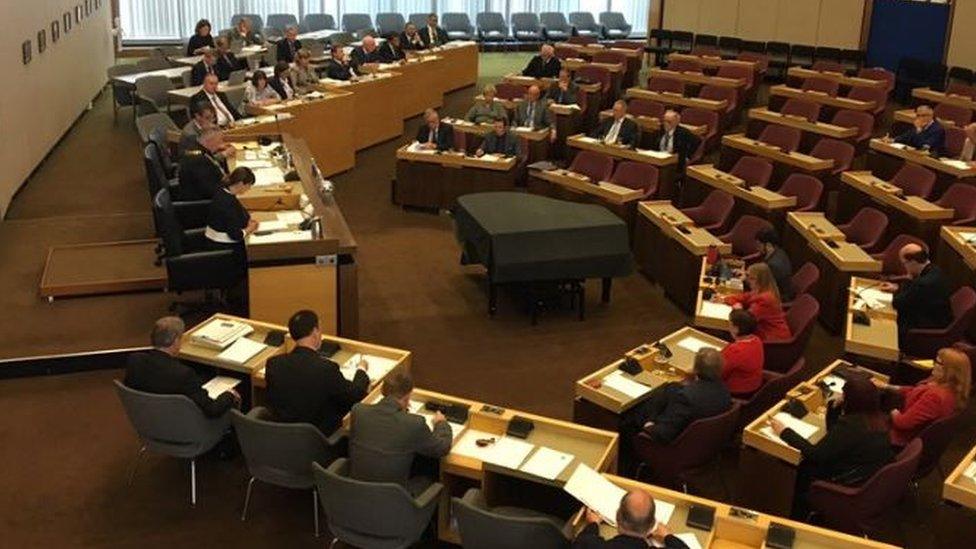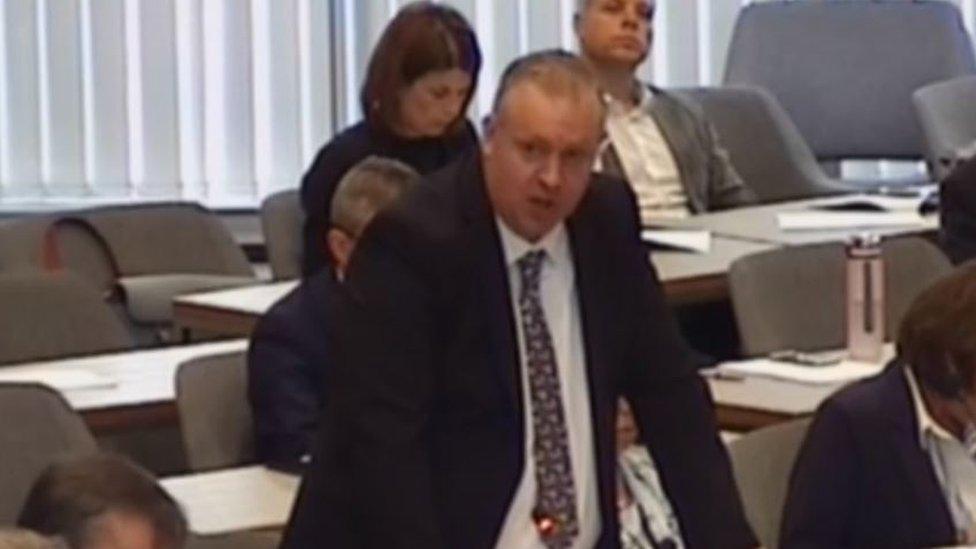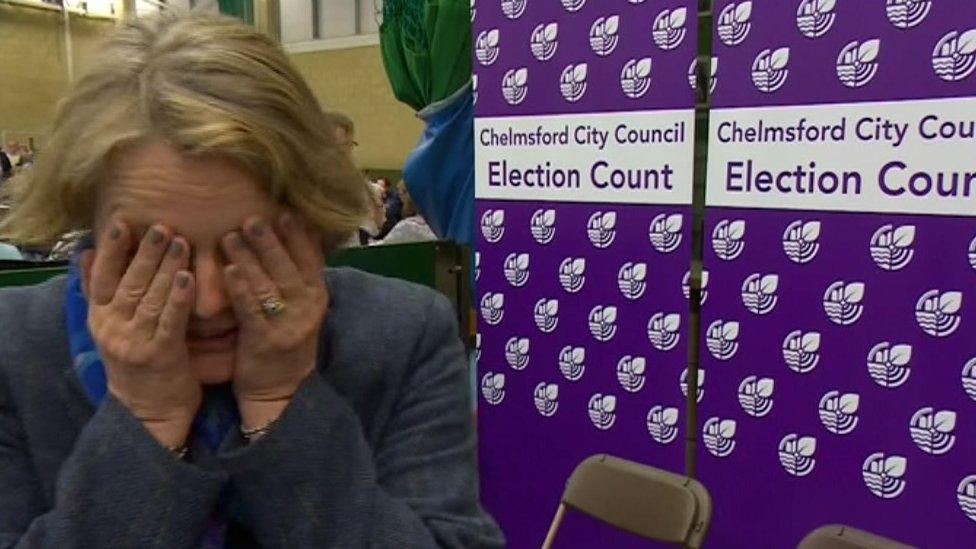Southend Council: Leader voted out as coalition takes over
- Published

One councillor, with no party affiliation, said other members had "behaved like children" in the battle to control the council
A council leader has been voted out after just three weeks in the job.
A joint Labour, independent and Liberal Democrat administration will run Southend Borough Council after a no-confidence vote in Conservative Tony Cox.
The "rainbow coalition" will be led by Labour's Ian Gilbert, independent Rod Woodley and Lib Dem leader Carole Mulroney.
The Tories tried to form a minority administration, but lost Monday's vote.
The Conservatives lost control of the council following the local elections on 2 May, but have led a minority administration with Mr Cox in the leadership role.
Negotiations took place between the three groups in the new coalition since a meeting held on 16 May in which the Tories lost every contested position and the independents called for an extraordinary meeting.

Tony Cox lost the no-confidence vote on Monday
Under the agreement a cabinet of seven will have three portfolios filled by Labour councillors, three by independents and one by the Lib Dems with major decisions taken jointly between the three group leaders.
At a heated meeting the Conservatives accused independent members of grasping for money and power while Mr Woodley repeatedly called Mr Cox a bully.
After the vote Mr Gilbert told the Local Democracy Reporting Service: "We all regret the particular circumstances that led us to this meeting but we have agreed to deliver what I genuinely believe is what people voted for and that is a partnership that represents 59% of the vote."
Mr Cox, who lost the no confidence vote by 27-20 with one abstention, said the Conservatives had formed a minority administration to ensure business at the unitary council continued.
He said: "What really saddens me is it has made Southend look a national laughing stock and that we could have all done without."
Councillor Stephen Aylen, who is not a member of any group, criticised members for "behaving like children" after a series of battles over who would lead the council.
Among the new administration's proposed policies are providing new social housing, improving street lighting and CCTV and introducing 20mph (32km/h) zones in residential streets and near schools.
- Published3 May 2019
